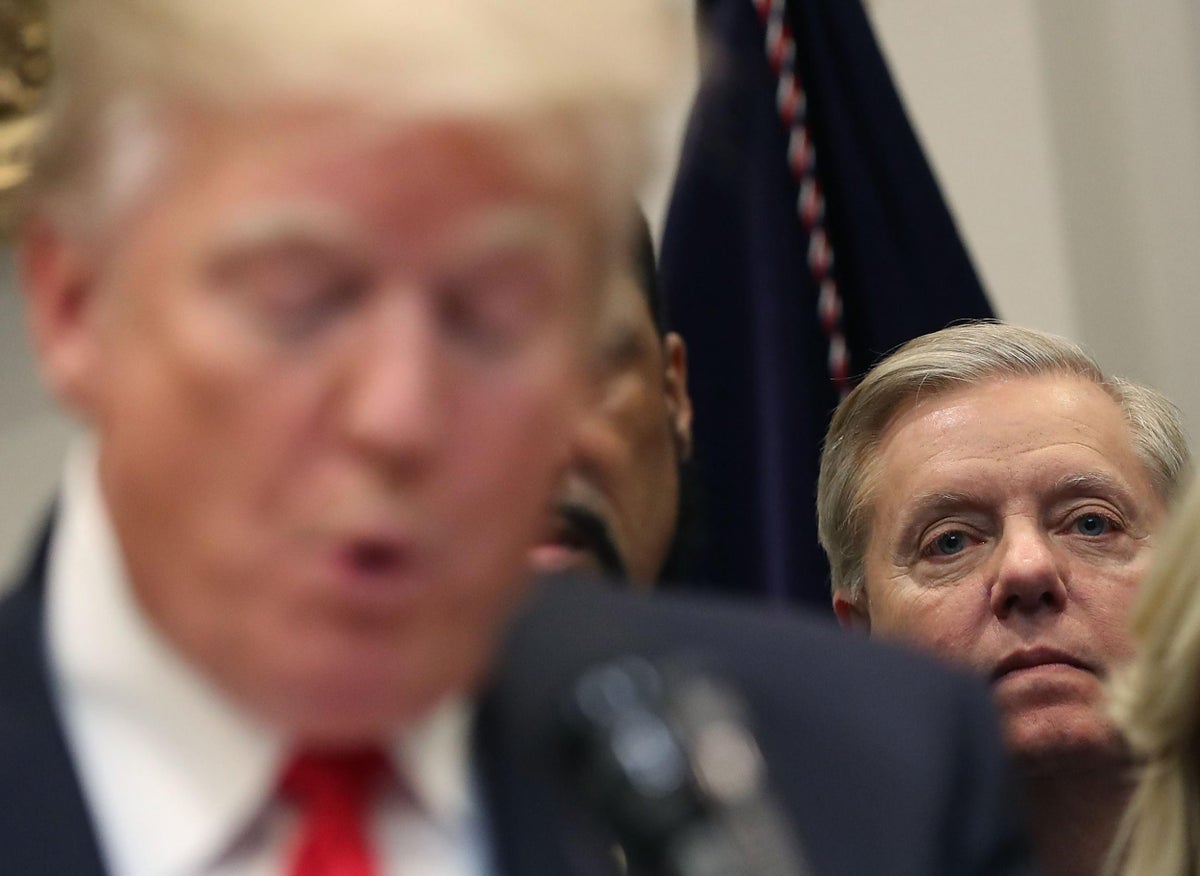
A federal judge in South Carolina has ordered Republican Senator Lindsey Graham to testify in the Fulton County, Georgia, probe into the push to overturn former president Donald Trump’s 2020 election loss.
In a 22-page order, US District Judge Leigh Martin May rejected Mr Graham’s motion to quash a subpoena ordering him to give evidence before a special grand jury under the supervision of Fulton County District Attorney Fani Willis.
The grand jury is looking into whether Mr Trump or any of his GOP allies violated Georgia laws by attempting to push Georgia Secretary of State Brad Raffensperger and Governor Brian Kemp to refuse to certify Mr Biden’s win, or by advocating for Georgia legislators to illegally ignore the will of voters by appointing pro-Trump electors who would have then voted for Mr Trump when the US electoral college met in December 2020.
Mr Graham had argued that he is immune from having to testify before the grand jury because he is a “high-ranking government official”, and because the US Constitution’s “speech or debate” clause prohibits the court from requiring him to appear.
Judge May rejected both of those claims, writing that “there are considerable areas of potential grand jury inquiry” which would not be covered by the “speech or debate” clause, which only shields senators official acts from scrutiny.
According to a copy of the subpoena viewed by The Independent, the Georgia judge who signed off on the document found that Mr Graham “questioned Secretary Raffensperger and his staff about reexamining certain absentee ballots cast in Georgia in order to explore the possibility of a more favourable outcome” for the then-president, who in November 2020 became the first Republican to lose the Peach State’s electoral votes since Bill Clinton defeated then-president George HW Bush in 1992.
“Senator Graham’s argument is that he is shielded from testifying before the grand jury because (1) he will be asked about these calls and (2) these calls were protected legislative factfinding inquiries related to issues that fall within his legislative province,” the judge wrote, adding that Mr Graham had “tether[ed] his argument to a selective reading of the Certificate of Material Witness that was issued by the Fulton County Superior Court, and in doing so, he suggests that its references to the two calls he made to Georgia Secretary of State Raffensperger are the only areas on which he will (or could) be questioned”.
But Judge May rejected his arguments, writing that there are “other areas of relevant inquiry” about which Mr Graham could face questions that would not be covered by the protections he enjoys for acts undertaken as part of his official duties. She invoked Supreme Court precedent which holds that the “speech or debate” clause “will not shield actions that are ‘political in nature rather than legislative,’” including statements Mr Graham made outside of Congress about the 2020 election and “efforts to ‘cajole’ or ‘exhort’ state election officials to change their election practices or alter election results”.
“Even if the Court were to accept that Senator Graham’s two calls to Georgia election officials were comprised entirely of legislative factfinding—and that any inquiry related to those two calls was therefore shielded by the Speech or Debate Clause—there would still be significant areas of potential testimony related to the grand jury’s investigation on which Senator Graham could be questioned that would in no way fall within the Clause’s protections,” she said.
In a statement Mr Graham’s office maintained that the constitution “prevents a local official from questioning a Senator about how that Senator did his job” and said he was merely doing “his due diligence before the Electoral Count Act certification” when he spoke with Georgia officials during the phone calls at issue.
“Although the district court acknowledged that Speech or Debate may protect some of Senator Graham's activities, she nevertheless ignored the constitutional text and binding Supreme Court precedent, so Senator Graham plans to appeal to the 11th Circuit,” his office said.







